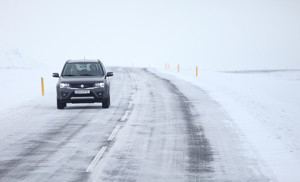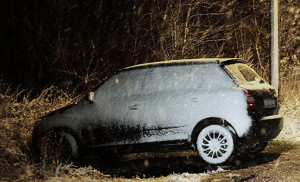Questions and Answers About Winter Tires
Posted on Sep 14, 2022 in Safety | 2 comments

Winter weather has already started its sloppy march across the northern parts of the United States. But that doesn’t mean it’s too late for some winter tire advice.
Why do you need winter tires? The fast answer is handling. Well-designed winter tires have deeper treads than summer or all-season tires. (The latter, by the way, are really three-season tires if you live in the snow belt.)
Winter tires’ deeper treads help them deal with snow and the icy precipitation that creates slush. An interesting side benefit of winter tires is that they improve traction by packing snow in those treads for better grip on snow.
Also, winter tires are designed with tiny slits in the treads (or as Bridgestone calls them “snipes”). These provide biting edges on ice that help with acceleration, deceleration, and stopping.
Traction and stopping power are the two most important reasons to have winter tires. You should count on your stopping distance at least doubling in winter weather. Then, think of how long it will take to stop if you have all-season or summer tires on your vehicle.
You may notice I keep referring to winter tires and not snow tires. Probably the best advice I ever heard came from a tire engineer. He said not to think of winter tires as snow tires. They’re designed to be so much more than just your guardians through the white stuff.

Why is that important? You need a tire that’s going to handle everything winter throws at you, not just snow. For example, a tire that just gives you snow traction will provide a rough ride when the pavement is dry. You need to find a tire that can strike a balance between both, because the pavement is still dry most of the time, even in the winter months.
Is it too late to put on winter tires? Actually, your procrastination may have helped you (assuming you haven’t already slid off into a ditch). The folks at TireRack.com, probably the largest retailer of tires in the United States, have tons of great information available on the web and recommend swapping out your summer tires for your winter ones once the thermometer dips to 40 degrees and below.
Why’s that? You don’t want to have to rely on summer tires once the possibility of freezing conditions arrives. But by waiting this little bit, your winter tires will have that much more tread depth, which always means better performance in slippery conditions.
Here’s one question that also seems to come up about winter tires: Do you need studded tires? In certain parts of the country they are required (as well as chains). However, if you don’t live in such an area, don’t use them. They can heavily damage dry roads.
Also, they’ll have an impact on cost and your car’s performance. Studded tires never offer a pleasant ride. So there’s no need to have them—unless, of course, you live in area that requires their use. If you do, you probably already know what you need to know about snow tires.





.gif)


We take cares about tires when drive in snow.
HUGE difference in performance, handling and safety with dedicated winter tires. Pirelli scorpions…